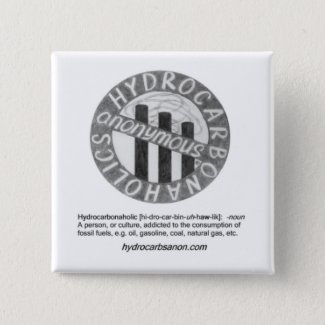That’s broadly accurate, given the mix of sources from which the US gets its electricity supply; it provides a good crude reminder of some of the dirtier, heavy industry connections to what we may think of as our cleaner, high tech lives; in theory, for our house, it’s not true.
We participate in a program that our utility, calls “Green Up.” We pay a premium of about ten percent per month on the supply part of our electricity bill (which is split between delivery and supply) and this is supposed to mean that 100% of our electricity comes from either wind energy or small hydro.
Getting hot and sticky now in the Northeast; our basement dehumidifier has kicked on, to draw water out of the air for the next few months (the alternative being to grow less than healthy or aesthetically pleasing black mold on the walls); we have a couple of window air conditioners that are on intermittently as well. July and August will be peak electricity usage months for us, and Green Up makes me feel a little better about this.
But it’s never that simple.
Are we really doing something positive? Helping move the
Dunno. . .
The supermarket down the hill from us has a “guaranty” that says something like “Monday thru Friday from
So what they are really saying is “We GUARANTY we’ll do this. . . (except, y’know, when we can’t).”
On one level, that’s a reasonable and prudent statement; if half of their crew is stricken by the flu, what can they be expected to do?
But once we provide these reasonable escape clauses, I can’t help feeling that they begin to be used (and expanded) in unreasonable ways.
And I wonder the same about Green Up.
We are all supposed to “read the fine print.” But the reality is that there’s a lot of fine print, there’s not a lot of time, and—very often—there isn’t really any choice. When you install software, do you really read the sixteen pages of the EULA before clicking?
Could you really stop using insert-name-of-software-you-desperately-need because in order to do so you have to agree to arbitrate any disputes you have with the company only in
I have to think that Green Up contains similar disclaimers about “exceptional” circumstances. Power production capacity is limited. And don’t we tend to have both less wind and less water when we have more heat and thus greater need for electricity?
For the most part, for me, what this all points back to is the issue of regulation. I am not quite as reflexively anti-corporate as I have been for most of my life, but at best I tend to view large companies the same way that I view teenagers: they’re going to try to push the limits; that’s their nature. And if you don’t rein them in, they’re going to hurt both themselves and others.
So the question becomes, Where are the grown ups?
On the side of the federal government, they’re not home; some state governments and municipalities do better; there are some good non-governmental organizations working on these issues (and then some scam organizations set up as fronts for polluters); there is also free-range info available in the blogosphere that can help clarify things.
We do the best we can with the information we have. . .








No comments:
Post a Comment